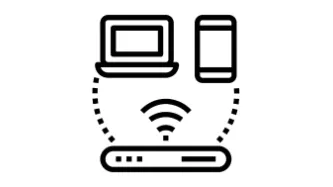Search
Content type: Long Read
In the UK, successive government ministers and members of parliament have made emotive proclamations about the malaise of "public sector fraud".
This year, former Work and Pensions Secretary Therese Coffey said that the welfare system "is not a cash machine for callous criminals and it’s vital that the government ensures money is well spent...[and] fraud is an ever-present threat."
In 2013, the UK's minister for the disabled made numerous claims that there were "vast numbers of bogus disabled […
Content type: Examples
In 2019, interviews with Hong Kong protesters destroying smart lampposts revealed that many distrusted the government's claim that they would only take air quality measurements and help with traffic control, largely because of the comprehensive surveillance net the Chinese government was using to control and oppress the minority Uighur population in the Xinjiang region. As part of their response to this threat, the protesters wore masks, carried umbrellas, and travelled on foot, using online…
Content type: Examples
A British freedom of information tribunal ruled that for national security reasons police in England and Wales may refuse to say whether they are using Stingrays, also known as IMSI-catchers, which are capable of tracking thousands of mobile phones and intercepting their calls, text messages, and other data. In 2016, the Bristol Cable found that police forces had bought hundreds of thousands of these devices disguised in public spending data by the acronym CCDC. Privacy International, which…
Content type: Case Study
The Ugandan government has a running contract with the Chinese tech giant, Huawei, to supply and install CCTV cameras along major highways within the capital, Kampala, and other cities.
While details of the contract remain concealed from the public, the Uganda Police Force (UPF) released a statement, simply confirming its existing business partnership for telecommunication and surveillance hardware, and software between the security force and Huawei. However, it is not clear whether the…
Content type: Examples
While the agency that manages residence permits, the Coordination of Government Activities in the Territories, is closed, Israel has instructed Palestinians seeking to verify whether their permits to remain in Israel are still valid to download the app Al Munasiq, which grants the military access to their cellphone data. The app would allow the army to track the Palestinians' cellphone location, as well as access their notifications, downloaded and saved files, and the device's camera. …
Content type: Examples
Montreal police have launched an online system to enable residents to report suspicious activity such as group gatherings after police officers noticed significant crowding in certain areas of the city. Both the Montreal police and the province's Sureté du Québec can hand out an on-the-spot $1,000 ticket for both indoor and outdoor illegal gatherings. Travellers returning to Canada who refuse to comply with self-isolation requirements can be fined up to $200,000 and up to six months in prison.…
Content type: Examples
The Northamptonshire Police reported a surge in calls from people reporting their neighbours for exercising more than once a day, holding barbecues in their back yards, or failing to cough into a tissue. Nick Adderley said his officers will issue penalty notices if necessary, but thought it important to first educate the public.
Source: https://www.bbc.co.uk/news/uk-england-northamptonshire-52052830
Writer: BBC
Publication: BBC
Content type: Examples
The Uganda Communications Commission announced on March 22 that it would crack down on people spreading fake videos and misinformation about the novel coronavirus through social media, noting that this behaviour is illegal under the Computer Misuse Act, the Data Protection and Privacy Act, and other penal laws. UCC went on to warn in a public notice that it would arrest and prosecute violators.
Sources:
http://www.china.org.cn/world/Off_the_Wire/2020-03/23/content_75847935.htm
https://twitter…
Content type: Examples
On the second day of India's nationwide shutdown due to the COVID-19 outbreak, the Karnataka government published the home addresses of quarantined residents, as a deterrent to breaking the rules. The list included individuals who had flown in from a foreign country and been asked to stay indoors for two weeks but who had not tested positive for the novel coronavirus. Although the government deleted a tweet announcing its intention, the list is still available on its website and is circulating…
Content type: Examples
Mexico is one of the biggest buyers of next-generation surveillance technology. And now data leaked to Forbes indicates it's taken an unprecedented step in becoming the first-known buyer of surveillance technology that silently spies on calls, text messages and locations of any mobile phone user, via a long-vulnerable portion of global telecoms networks known as Signalling System No. 7 (SS7).
The revelation was contained in what an anonymous source close claimed was…
Content type: Examples
The whistleblower said they were unable to find any legitimate reason for the high volume of the requests for location information. “There is no other explanation, no other technical reason to do this. Saudi Arabia is weaponising mobile technologies,” the whistleblower claimed.
The data leaked by the whistleblower was also seen by telecommunications and security experts, who confirmed they too believed it was indicative of a surveillance campaign by Saudi Arabia.
The data shows requests for…
Content type: Examples
8 europeans telecoms providers (Vodafone, Deutsche Telekom, Orange,Telefonica, Telecom Italia , Telenor, Telia and A1 Telekom Austria) have agreed to share mobile phone location data with the European Commission to track the spread of the coronavirus.
The Commission said it would use anonymsed data and aggregated mobile phone location to coordinate the tracking of the virus spread. They also announced the data would be deleted after the crisis.
Source: https://www.reuters.com/article/us-…
Content type: Examples
After police officers in Paraguay posted videos of themselves punishing people who have been caught breaking quarantine on social media, Paraguayans expressed outrage over their actions. The punishments seen in the videos, which were recorded and shared by the officers themselves, include threatening people with a taser to force them to do star jumps or making them repeat "I won’t leave my house again, officer" while lying face down on the floor. The country's interior minister, Euclides…
Content type: Examples
The Romanian government has formally notified the Council of Europe under Article 15, paragraph 3 of the ECHR of the country's state of emergency decree, noting that some of the measures being taken involve derogations from the obligations under the Convention.
Source: https://rm.coe.int/09000016809cee30
Writer: Permanent Representation of Romania
Publication: Official letter
Content type: Examples
On March 14, Romanian president Klaus Iohannis announced a state of emergency to make it possible to allocate new resources for crisis management, and urged the public to follow isolation guidelines and hygiene rules. The Parliament must approve within five days, and the state of emergency lasts 30 days. The decree allows the government to carry out checks on persons and places, order temporary closures of shops and other public places, halt the distribution of publications or broadcasts, and…
Content type: Examples
On March 14, the Peruvian government set up a website for individuals to check their symptoms so they can be directed towards sources of help. The web form asks for ID number, phone, email and home address.
Source: https://www.gob.pe/coronavirus
Writer: Peruvian government
Publication: Peruvian government
Content type: Examples
Under a new protocol, international passengers arriving at Lime's Jorge Chavez International Airport or by ship at Callao Port, is referred to medical staff if they are arriving from places with confirmed cases, even if they are asymptomatic. Passengers who show symptoms in transit are transferred to isolation areas, where they receive care. The passengers are also required to supply personal information so they can be surveilled over the following days.
Source: https://andina.pe/ingles/…
Content type: Examples
The Indonesian Doctors Association has asked the government to open up the identity of patients who have tested positive for the novel coronavirus in order to facilitate contact tracing and improve the efficiency of efforts to prevent further spread, arguing that in an emergency like this the public will support the disclosure in the interests of safety.
Source: https://mediaindonesia.com/read/detail/296992-permudah-kontak-tracing-idi-dorong-pemerintah-buka-data-pasien
Writer: Atalya…
Content type: Examples
The first two confirmed cases of COVID-19 in Indonesia and their neighbours became the targets of media coverage and social media abuse after their personal details were spread via WhatsApp and other social media soon after the President announced the positive tests results - before anyone told the patients themselves. The Health Ministry denied responsibility for the data breach.
Sources:
https://www.thejakartapost.com/news/2020/03/04/covid-19-patients-become-victims-of-indonesias-lack-of-…
Content type: Examples
India has begun stamping the hands of people arriving at airports in the states of Maharashtra and Karnataka to specify the date until which they must remain in quarantine. The government is also using airline and railway reservation data to track suspected infections and find hand-stamped people who had promised not to travel. Kerala authorities have used telephone call records, CCTV footage, and mobile phone GPS systems to trace contracts of COVID-19 patients, and published detailed time and…
Content type: Examples
UK: O2 shares aggregated location data with government to test compliance with distancing guidelines
Mobile network operator O2 is providing aggregated data to the UK government to analyse anonymous smartphone location data in order to show people are following the country's social distancing guidelines, particularly in London, which to date accounts for about 40% of the UK's confirmed cases and 30% of deaths. The project is not designed to monitor individuals. Lessons from the impact on London of travel restrictions could then be applied in the rest of the country. The government says it has…
Content type: Examples
BT, owner of UK mobile operator EE, is in talks with the government about using its phone location and usage data to monitor whether coronavirus limitation measures such as asking the public to stay at home are working. The information EE supplies would be delayed by 12 to 24 hours, and would provide the ability to create movement maps that show patterns. The data could also feed into health services' decisions, and make it possible to send health alerts to the public in specific locations.…
Content type: Examples
The coronavirus action plan announced on March 3, alongside many measures for managing the NHS in the crisis, will also allow the Investigatory Powers Commissioner to appoint judicial commissioners (JCs) on a temporary basis in the event that there are insufficient JCs available to operate the system under the Investigatory Powers Act 2016. The Home Secretary, at the request of the Investigatory Powers Commissioner, will also be allowed to vary the time allowed for urgent warrants to be…
Content type: Examples
In 2013, Edward Snowden, working under contract to the US National Security Agency for the consultancy Booz Allen Hamilton, copied and leaked thousands of classified documents that revealed the inner workings of dozens of previously unknown surveillance programs. One of these was PRISM, launched in 2007, which let NSA use direct access to the systems of numerous giant US technology companies to carry out targeted surveillance of the companies' non-US users and Americans with foreign contacts by…
Content type: Examples
A new examination of documents detailing the US National Security Agency's SKYNET programme shows that SKYNET carries out mass surveillance of Pakistan's mobile phone network and then uses a machine learning algorithm to score each of its 55 million users to rate their likelihood of being a terrorist. The documents were released as part of the Edward Snowden cache. The data scientist Patrick Ball, director of research at the Human Rights Data Analysis Group, which produces scientifically…
Content type: Case Study
Invisible and insecure infrastructure is facilitating data exploitation
Many technologies, including those that are critical to our day-to-day lives do not protect our privacy or security. One reason for this is that the standards which govern our modern internet infrastructure do not prioritise security which is imperative to protect privacy.
What happened?
An example of this is Wi-Fi, which is now on its sixth major revision (802.11ad). Wi-Fi was always designed to be a verbose in…




